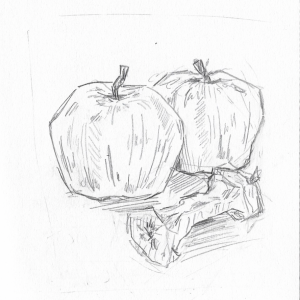The Environmental Impact of Beef? It’s Complicated
May 1, 2019
Beef is bad. Or, at least, that’s what environmentalists and other climate change activists would have you believe. They would point to statistics about the extreme amounts of methane cows release into the air and all of the energy that goes into producing their feed. But increasingly, research is complicating the picture of beef and cattle as the ultimate enemies of the environment.
There are three main reasons why eliminating beef isn’t as simple or as unequivocally good for the environment as many people might have you think. The first has to do with nutrition.
A 2017 study by Robin White, an assistant professor of animal sciences at Virginia Tech, and Mary Beth Hall, an animal scientist at the US Dairy Forage Research Center in Wisconsin, found that if all animals were eliminated from farming, total US greenhouse gases would only be reduced by a moderate 2.6%. In exchange for this modest cutback, though, the country would be faced with a massive nutrition problem. The authors noted that while it is possible for an individual to meet their essential vitamin, mineral, and fatty acid needs on a plant-based diet, it is challenging to do so. In addition, given the kinds of crops that can be grown in the US’ climates and with its soil, the authors explained that it could be difficult to produce enough of the right kinds of crops and provide a whole population with the nutrients they need.
In discussing beef’s impact on the environment, it is critical to differentiate between the environmentally disastrous practice of factory farming and the small, grass-based ranches that have supplied the US with its beef for decades. These lower-impact farms are not a big part of the emissions problem and have the potential to actually benefit the environment.
Manure storage lagoons—structures made from soil that hold liquid manure—are a large source of global methane emissions. But, it is industrialized farms that use manure lagoons, not small cattle ranches. A US Environmental Protection Agency document states that methane emissions from manure were limited before the 1970s, as livestock were raised on small farms where their manure was spread through pastures and corrals.
Additionally, small farms aren’t as mechanized as factory farms, and a significant portion of agriculture’s CO2 emissions come from the automated systems and facilities of farms who keep their animals confined continuously. Small farms that raise their cows on grass also don’t buy and grow feed, the growing and harvesting of which also contributes to CO2 emissions.
But perhaps most surprisingly for many people, cattle from lower-impact farms not only aren’t as bad for the environment as we may have thought, but can actually help to reduce climate change and mitigate its most catastrophic effects. A source of nitrous-oxide emissions, another one of the warming greenhouse gases, are man-made chemical soil fertilizers. In her book Defending Beef: The Case for Sustainable Meat Production, Nicolette Hahn Niman points out that many small, organic farms raise cattle that naturally fertilize the soil without chemicals.
In addition to obviating the need for chemical fertilizer, livestock plays an integral role in high-carbon-sequestering farming. The nutrients they provide to the soil through their manure allows it to better capture carbon that has already been released into the air, an important tool for combating climate change.
Finally, the release of CO2 by deforestation is a primary source of global emissions. But, as Niman explains, forests are cut down not just for cattle grazing but also for growing crops like soy, a product that is present in many vegetarian foods. Deforestation has largely been blamed on the meat industry, but vegetarian crops are also part of the problem.
As we push for ever-more intensive climate action, it is important that we understand beef’s real impact on the environment. If we simply blame large portions of our emissions on cattle, we will overlook their potential in fighting climate change, and it is our children who will have to pay.
This piece also appears in our April 2019 print edition.









